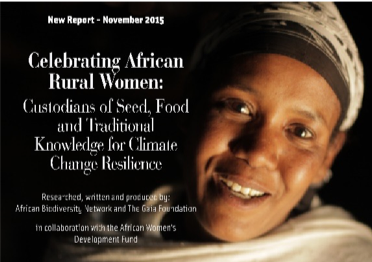First published on 02/29/2016, and last updated on 10/09/2018
At a time when Africa most needs it, the vast wealth of farmer’s knowledge that sustains the diversity of the continent’s crops, wild foods, nutrition, medicinal plants and Africa’s resilience to climate change is on the verge of being lost forever.
In their pursuit of profit, big agribusiness and governments are aggressively expanding fossil fuel-intensive monocultures and introducing laws which criminalise saving and exchanging seed, thereby riding rough-shod over those who are most knowledgeable about and able to safeguard agro-biodiversity.
A new report by the African Biodiversity Network, the Gaia Foundation and the African Women’s Development Fund shows how small farmers – mainly women – still produce 80% of the food in Africa on just 14.7% of the agricultural land, and control 80% of the seeds produced and exchanged on small farms. It offers a window into the complexity of women’s agricultural knowledge, and their understanding of the nutritional and cultural needs of the family and the community – all of which lie at the heart of food sovereignty.
The report celebrates the vital role that African rural women play in selecting, breeding and enhancing the diversity of their seeds. Kagole Margret Byarufu, from Hoima in Uganda, explains, “By learning from the elders we re-discovered exciting things like a type of pumpkin which is as big as a watermelon, but white inside. It grows well when it is dry, cooks well, and you can feed the cows with the outer skin. Traditionally elders would mix millet and green grams, pumpkin calabash seeds and castor oil as each plays a different role. The different crops use different nutrients from the soil. So they help each other and whatever the weather, something will grow.”
The report captures the voices of women who are actively working with their local communities, reviving seed diversity, and regaining their leadership role – from Ethiopia, Kenya, South Africa, Uganda and Benin. As custodians of encyclopaedic agricultural knowledge, they are both disproportionately affected by the expansion of the industrial model of agriculture and leading the counter movement to ensure that Africa’s food future is diverse and helps cool the planet.
Access the full report here: www.gaiafoundation.org/CelebratingAfricanRuralWomen .
